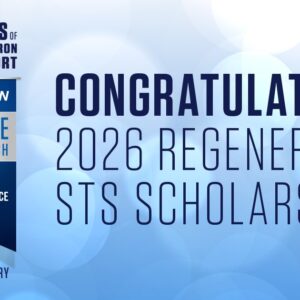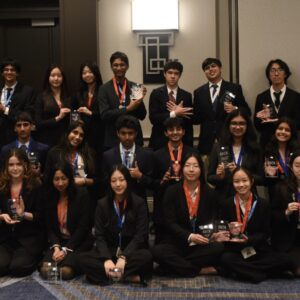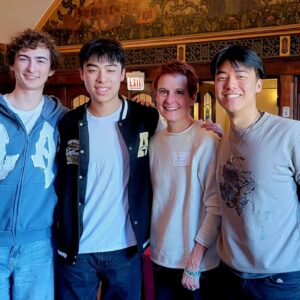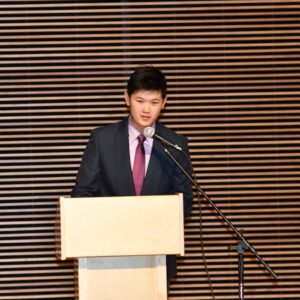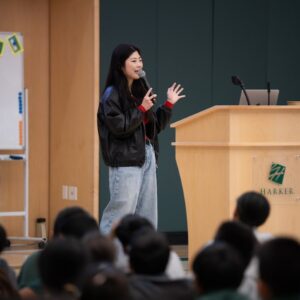Harker is pleased to announce that Dr. Teja Patil ’02 is the 2018 Distinguished Alumni Award recipient.
The Distinguished Alumni Award recognizes and honors a prominent alumna or alumnus who exemplifies the very best of Harker, whose contributions have led to extraordinary advances that benefit the greater good, who gives back to his or her community and to Harker, and who inspires others by his or her professional leadership and commitment.
Patil embodies the Harker philosophy through her lifelong passion for learning, and commitment to civic responsibility in her work at the Palo Alto Veterans Administration (PAVA) and overseas. Her commitment to these tenets has created a highly individualized path in her quest, showing both compassion and leadership in her work. Harker honors her individuality, her leadership and her commitment to the human race to make the world a better place. She is truly a global citizen.
Patil was born in India, moved to the U.S. when she was 5 and began attending Harker in grade 5. Her passions at Harker were all things theater, French and biology.
In 2006, Patil earned a B.S. in biochemistry and cell biology (cum laude) from the University of California, San Diego, and also studied political science at the American University in Paris. Upon returning from France, she was not convinced that medicine was her calling. “I worried that being a physician was too narrow and would not satisfy my interest in the humanities and social sciences,” she said. Instead of medical school, she went to the University of Michigan, Ann Arbor, to pursue a master’s in epidemiology and better understand the social determinants of health.
Patil was particularly interested in the interplay of genetics and environment in chronic disease. Her major works while at UM focused on the genetics of heart disease in the old order Amish as well as glaucoma in Peru. Her capstone project in Lima led to the discovery of a novel mutation in the myocilin gene, a previously unknown cause of hereditary glaucoma in indigenous populations.
Although she enjoyed public health research, the long hours of data analysis and paper writing did not feel quite right. “I knew I was making an impact but it felt very far removed. I boomeranged back to my original vision of becoming a physician. It’s ironic – I thought my ‘humanities’ side would not be adequately fed in the medical field; it turns out being a doctor, focusing on the individual patient, is what gave me the satisfaction I needed – that desire to feel more connected to the people around me.”
She received her M.D. with a concentration in global health from the University of California, San Francisco, in 2012. During that time, she spent a summer at an HIV/AIDS clinic in Mfangano, Kenya, and then went on to research the effects of malaria in pregnancy. She remained at UCSF for her internal medicine residency.
“UCSF is known as the birthplace of hospital medicine; I had so many inspirational, brilliant and kind mentors there and I learned that I did not have to be a subspecialist to be an excellent or expert physician. Working in Saipan, an island in the South Pacific with little access to subspecialty care, also cemented my decision to be a jack of all trades and remain in general internal medicine. However, I was aware that this can be a taxing occupation with high rates of burnout due to the pace and severity of illness. Therefore, I chose to combine my practice in hospital medicine with teaching, in order to build in a buffer to burnout. Having students makes it hard to lose your sense of wonder,” she said.
In 2015, Patil became an attending physician doing hospital medicine at the PAVA hospital and a clinical instructor of medicine at Stanford University School of Medicine. “Medicine is an apprenticeship model,” she noted. “Whenever I work in the hospital, I never take care of patients alone, it is always in conjunction with medical students, interns and residents.”
Her particular areas of focus at PAVA have been improving resident experience and the educational value of nighttime clinical rotations. Her current interest is how to prevent physician burnout by building self-reflective practice and emotional resilience. “I love geriatrics and end-of-life care because it is the perfect intersection of complex decision-making and building therapeutic alliance. I am so grateful to work at the VA where both my brain and my heart feel that they are challenged and growing.”
The Patil family is truly a Harker family. Brother DJ Patil has two children at Harker, Veyd, grade 7, and Samaara, grade 4, and Teja’s parents Suhas and Jayashree have been deeply involved with Harker. The Patil Theater in the new Rothschild Performing Arts Center bears their name.

